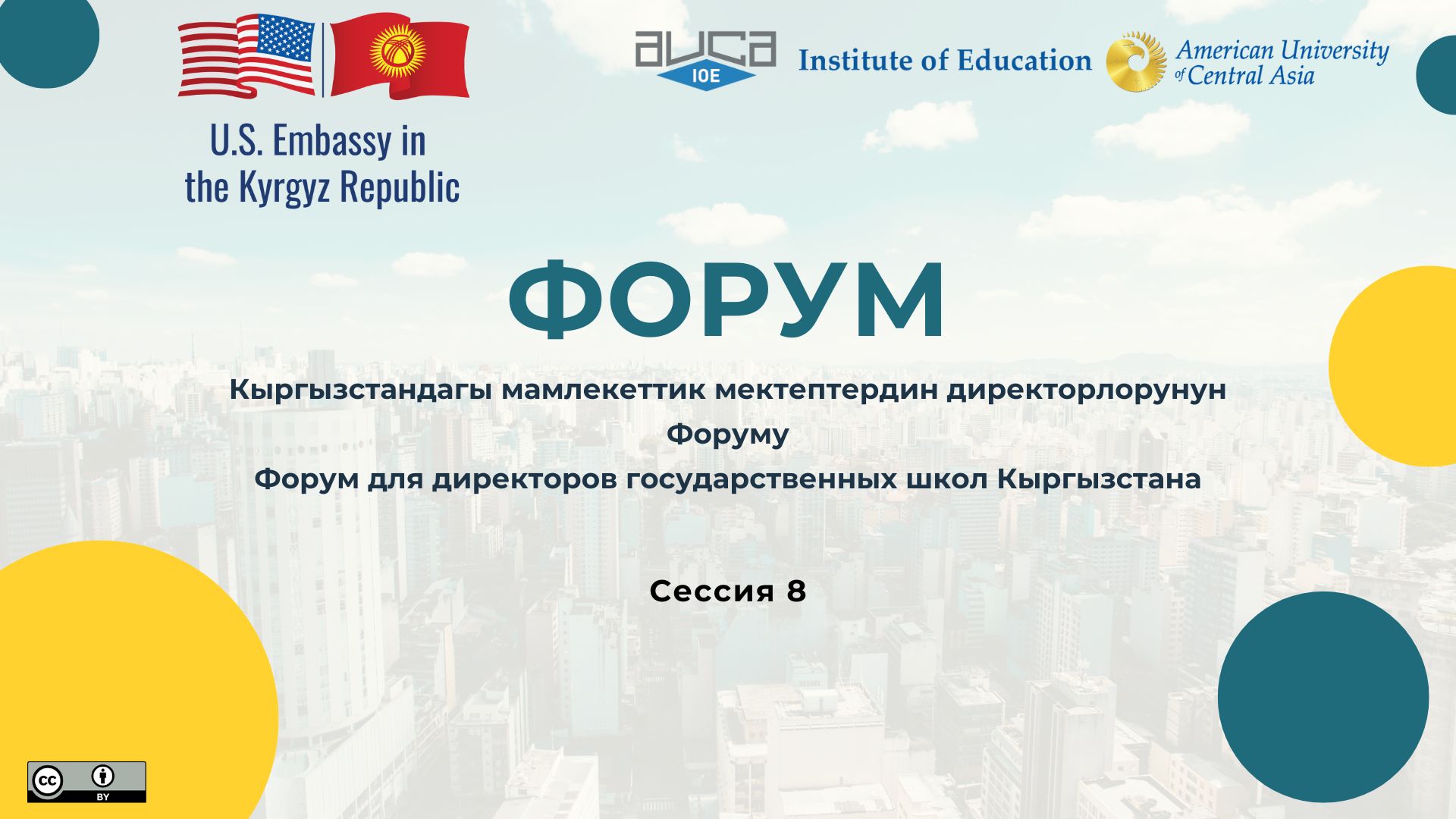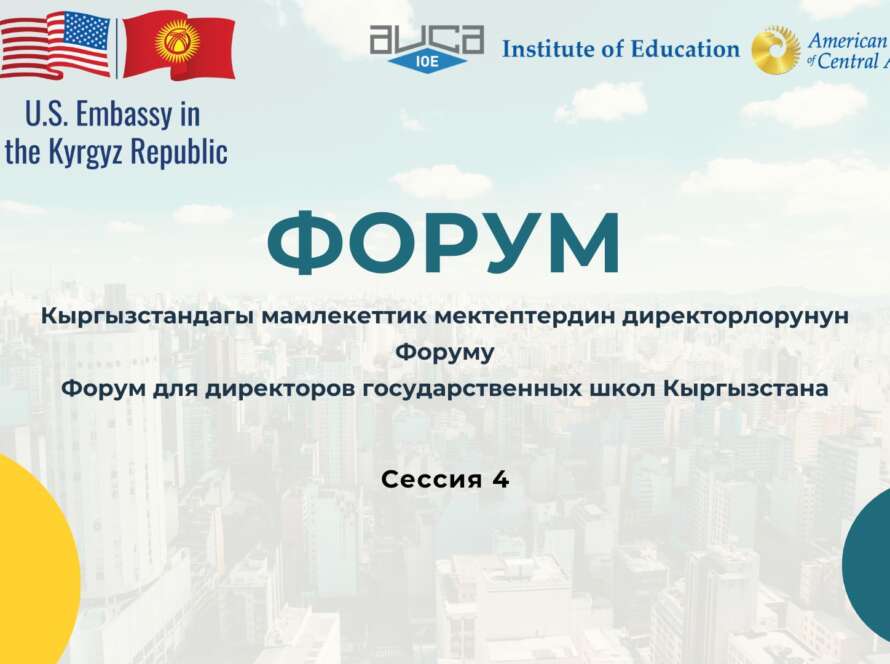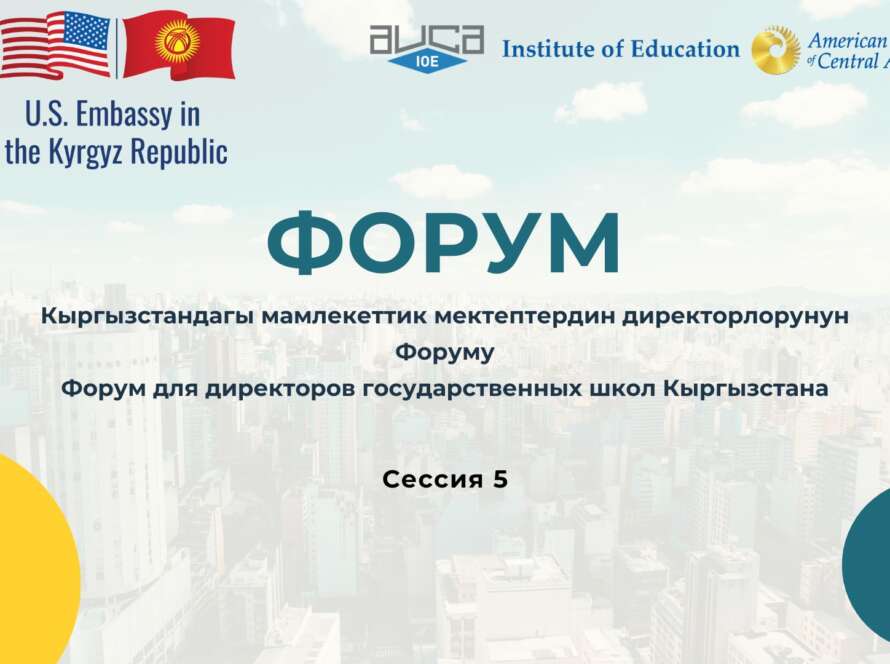Forum for Public School Directors in Kyrgyzstan (FORUM)
A Collaborative Space for School Directors to Share Knowledge and Best Practices
Meeting Report Summary
Session on Professional Capital and Community
May 10th, 2024
The eighth and final online session of the FORUM was held on May 10th, led by Professor Tamo Chattopadhay, the Director of the Institute of Education at the American University of Central Asia. A total of 27 principals participated in the meeting, along with two co-lead directors and the IOE project manager. The session featured synchronous online translation in three languages: English, Kyrgyz, and Russian.
Introduction:
The session began with brief introductions from the participating directors. Professor Chattopadhay emphasized the importance of the meeting as a reflective conversation rather than a training session. He introduced the topic of “Professional Capital and Community,” framing it as a vision for public school directors in Kyrgyzstan.
Key Elements:
Professional Capital and Community: Professor Chattopadhay introduced the concept of Professional Capital, which encompasses Human Capital, Social Capital, and Decisional Capital. He highlighted that all three elements are crucial for building a robust professional community among school directors.
Leadership from the Middle: The importance of middle leadership was discussed, noting that directors play a dual role in managing school administration while collaborating with education authorities. This involves managing relationships both up (with education authorities) and down (within the school community).
Instructional Leadership: Directors were encouraged to see themselves as “Chief Teaching Learning Officers,” responsible for helping teachers improve their instructional methods and supporting students in their learning journey.
Professional Community of Practice: The session emphasized the significance of professional learning networks and the need for directors to engage in continuous professional development and collaboration.
Discussion Highlights:
Challenges in Building Decisional Capital: Directors acknowledged the importance of developing Human Capital and Social Capital but identified Decisional Capital as the most challenging. They noted that they are often excluded from key decisions, such as hiring directors, incorporating new policies, and integrating new methods. This exclusion undermines their ability to effectively contribute to the school system.
Need for Legislative Support: The directors emphasized that current policies do not support Decisional Capital, which they view as essential for fostering a humane and effective education system. They suggested proposing a new framework to the Ministry of Education to ensure directors are included in decision-making processes.
Organizational Support and Continued Learning: The need for a functioning organization that unites school leaders in developing Decisional Capital was highlighted. Directors expressed concerns about the multiple roles they are expected to fulfill and the lack of support and recognition for their responsibilities. They called for better normative documents to support both directors and teachers.
Role of Directors as Advocates: Professor Chattopadhay emphasized that directors need to advocate for themselves and engage in organized, formal exchanges of ideas, knowledge, and practices to enhance their professional capital. He concluded by encouraging directors to see their roles as opportunities to increase their professional capacity and to address the challenges they face collectively.



